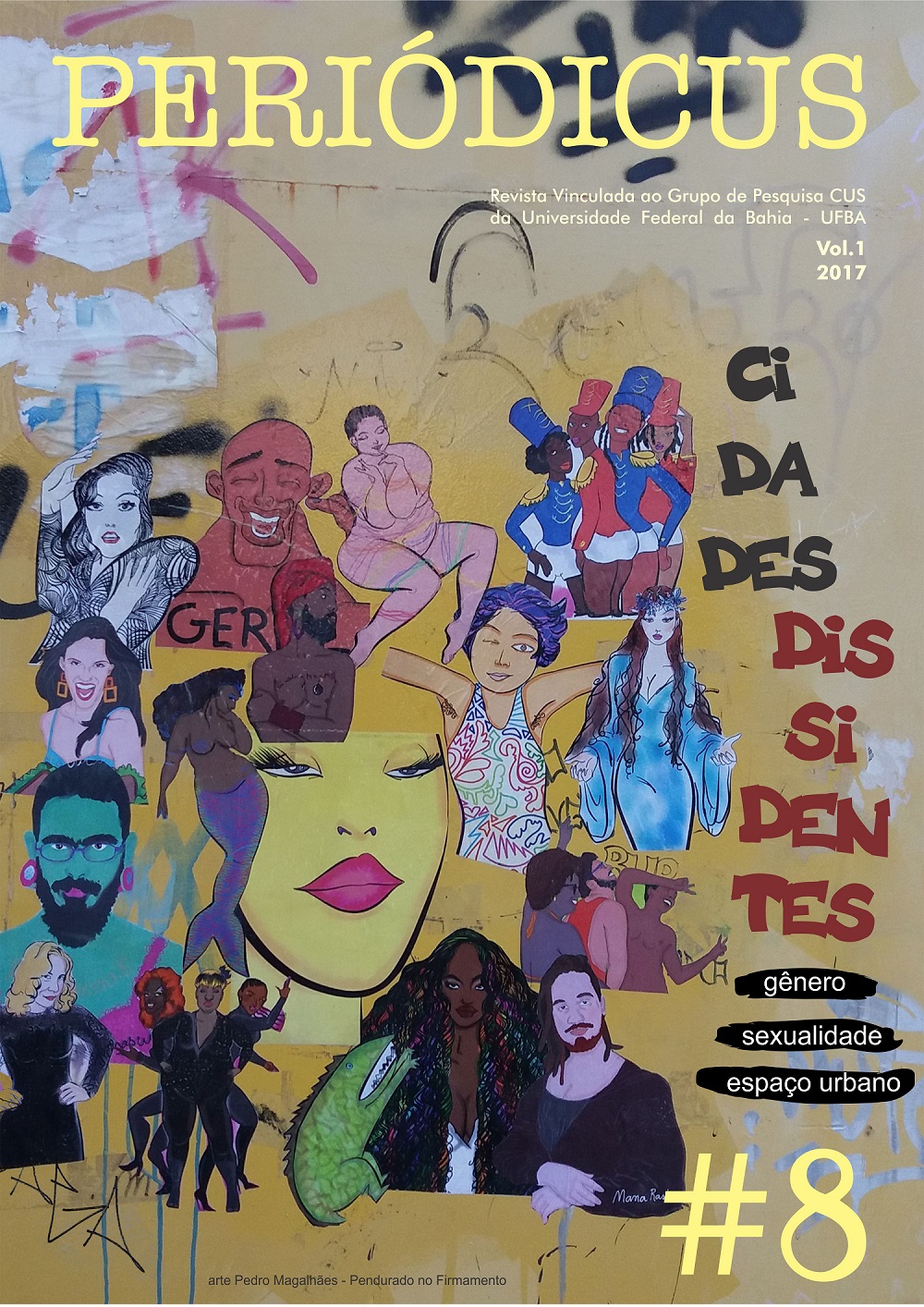TRANSterritorializações – O espaço (im)preciso da travestilidade
DOI:
https://doi.org/10.9771/peri.v1i8.23931Abstract
O presente artigo objetiva apresentar o processo de construção das ocupações territoriais constituídos a partir dos espaços urbanos considerados como relacionais, dinâmicos e em constante atribuição de sentido, uma perspectiva incorporal que pode estar a serviço tanto da uniformização, quanto da ressingularização dos processos subjetivos. Pretende-se apresentar perspectivas dissidentes do processo de travestilização - a partir da noção de pós-biografia, que questiona a noção de gênero e de identidade abordados de modo linear e naturalizado e, por outro lado, considera subjetividades múltiplas, fluidas, imprecisas - inspirado na trajetória de Gisberta, travesti que mora e trabalha no interior da Bahia, e aponta para a discussão decolonial que pretende avançar na geopolítica da elaboração do conhecimento e dispor das ocupações territoriais no interior. O trabalho está estruturado a partir da compreensão das Linhas de Vida propostas por Suely Rolnik em Cartografias Sentimental e como elas concebem produções de subjetividade e contextos de sociabilidade que propiciam desterritorializações e reterritorializações constantes.
Downloads
Downloads
Published
How to Cite
Issue
Section
License
Copyright (c) 2018 Revista Periódicus

This work is licensed under a Creative Commons Attribution-NonCommercial 4.0 International License.
Authors who publish in this journal agree to the following terms:
Authors retain copyright and grant the journal the right of first publication, with the work simultaneously licensed under a Creative Commons Attribution Noncommercial License that allows the work to be shared with acknowledgment of authorship and initial publication in this journal, but prohibits commercial use.
Authors are authorized to enter into separate additional contracts for non-exclusive distribution of the version of the work published in this journal (e.g., publishing in an institutional repository or as a book chapter), with acknowledgment of authorship and initial publication in this journal.
Authors are permitted and encouraged to publish and distribute their work online (e.g., in institutional repositories or on their personal website) at any point before or during the editorial process, as this can generate productive changes and increase the impact and citation of the published work (see The Effect of Open Access).








